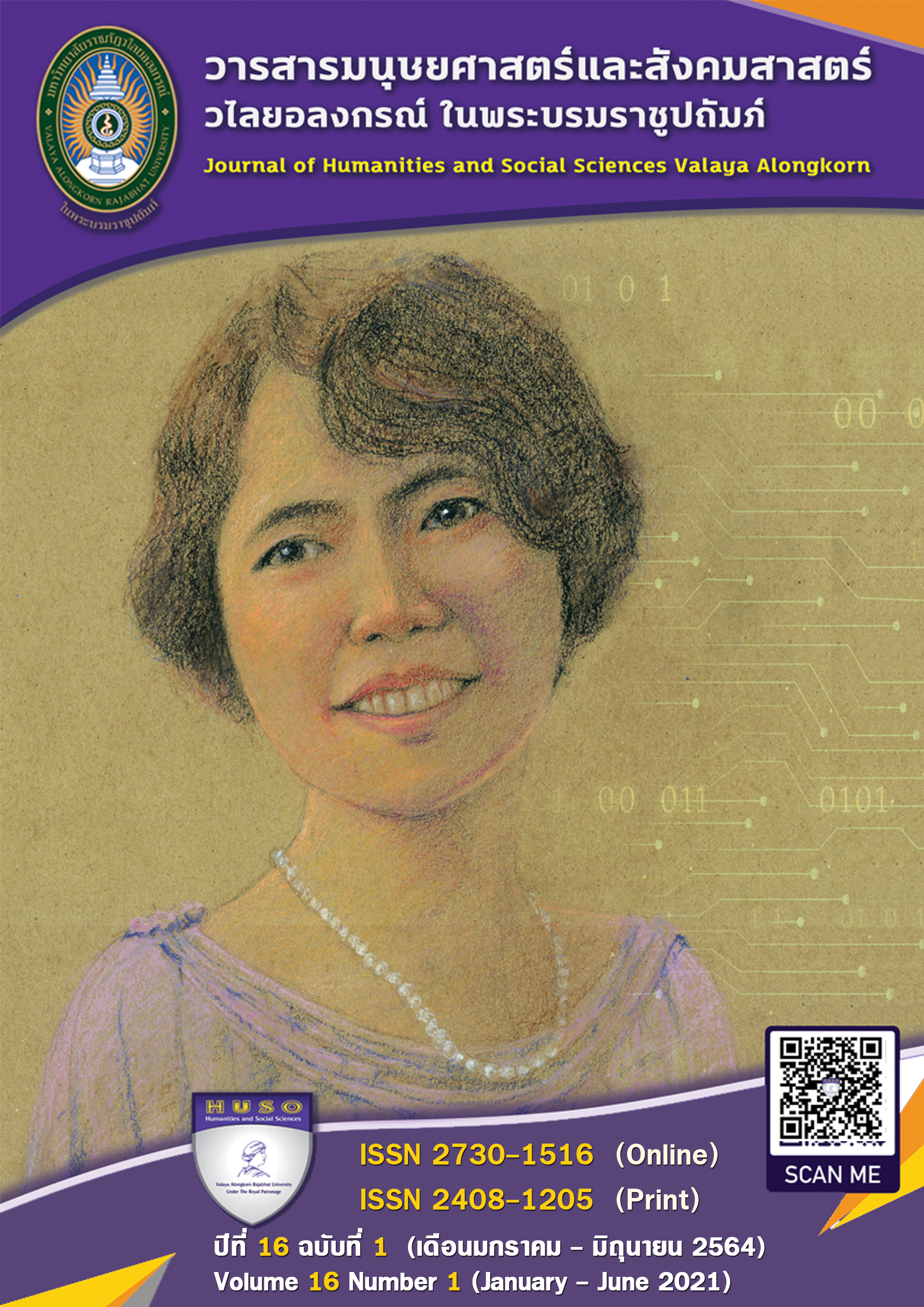AN ALTERNATIVE JUSTICE WITH FAMILY MEDIATION
Main Article Content
Abstract
The alternative justice process is primarily used as a measure to reduce the burden of cases (diversion) from the judicial process. Regardless of the measures taken at any stage of the justice system, the main principle is to create "alternative" measures instead of imprisonment for judicial officials to apply to offenders. The mediation
of family disputes is an important dispute resolution option. This option can help the judicial process that takes time and expense and sometimes deteriorate the family relationship. The law realizes that family relationships is so important and sensitive that parents and children cannot be completely separated from each other. In addition, the law emphasizes on the importance of the family institution for reconciliation. The family case is a conciliatory and separates from the mediators registered at the Dispute Settlement Bureau, the Office of the Courts of Justice. Moreover, the Central Juvenile and Family Court still has the mission of the President of the Supreme Court On the background of knowledge, rules and procedures for registration and removing the name from the register Family Case Peacemaker 2011. the Central Juvenile and Family Court is also responsible for providing training and practice to applicants and peacemakers, including developing the family mediation system of juvenile and family courts to be consistent across the country. Therefore, the Central Juvenile and Family Court established the Central Juvenile and Family Court Conciliation Center to support such mission. In case of compromise results is success, the plaintiff withdraws the lawsuit or the family case peacemakers arrange a compromise agreement and report to the court as the next step.
Article Details
ลิขสิทธิ์บทความวิจัยที่ได้รับการตีพิมพ์เผยแพร่ในวารสารมนุษยศาสตร์และสังคมศาสตร์ วไลยอลงกรณ์ ในพระบรมราชูปถัมภ์ ถือเป็นกรรมสิทธิ์ของคณะมนุษยศาสตร์และสังคมศาสตร์ มหาวิทยาลัยราชภัฏวไลยอลงกรณ์ ในพระบรมราชูปถัมภ์ ห้ามนำข้อความทั้งหมดหรือบางส่วนไปพิมพ์ซ้ำ เว้นแต่จะได้รับอนุญาตจากมหาวิทยาลัยเป็นลายลักษณ์อักษร
ความรับผิดชอบ เนื้อหาต้นฉบับที่ปรากฏในวารสารมนุษยศาสตร์และสังคมศาสตร์ วไลยอลงกรณ์ ในพระบรมราชูปถัมภ์ เป็นความรับผิดชอบของผู้นิพนธ์บทความหรือผู้เขียนเอง ทั้งนี้ไม่รวมความผิดพลาดอันเกิดจากเทคนิคการพิมพ์
References
กระทรวงยุติธรรม.
กิติพงษ์ กิตติยารักษ์และคณะ.(2551). การพัฒนากระบวนการยุติธรรม กรุงเทพมหานคร:
สำนักงานกองทุนสนับสนุนการวิจัย (สกจ.)
เกษม คมสัตย์ธรรม. (2552). กฎหมายเกี่ยวกับการประนอมข้อพิพาท. กรุงเทพมหานคร:
อรุณการพิมพ์.
คณะกรรมการชำระพจนานุกรม ฉบับราชบัณฑิตยสถาน พ.ศ. 2542. (2546). พจนานุกรมฉบับ
ราชบัณฑิตยสถาน พ.ศ. 2542. กรุงเทพมหานคร: บริษัท นานมีบุ๊คส์พับลิเคชั่นส์ จำกัด.
คณะทำงานโครงการน าร่องพัฒนาระบบงานยุติธรรมชุมชน. (2550). การไกล่เกลี่ยระงับข้อพิพาท
และความขัดแย้งในชุมชน. กรุงเทพมหานคร: คณะทำงานโครงการน าร่องพัฒนาระบบงานยุติธรรมกระทรวงยุติธรรม.
จรูญ ชีวิตโสภณ. (2539). การไกล่เกลี่ยเพื่อให้เกิดการประนีประนอมยอมความคดีครอบครัว.
ศาลจังหวัดสมุทรปราการแผนกคดีเยาวชนและครอบครัว.
โชติช่วง ทัพวงศ์ และคณะ. (2538). ครบรอบ 1 ปี ระบบการไกล่เกลี่ยเพื่อยังให้เกิดการ
ประนีประนอมยอมความของศาลแพ่ง. กรุงเทพมหานคร: ศาลแพ่ง.
ไพโรจน์ กัมพูสิริ. (2555). รวมบทความกฎหมายลักษณะครอบครัว. กรุงเทพมหานคร: วิญญูชน.
สุทธิพล ทวีชัยการ . หน่วยที่ 9, กระบวนการยุติธรรมทางเลือกในคดีอาญา , เอกสารประกอบการ
ศึกษานิติศาสตร์ .มหาวิทยาลัยสุโขทัยธรรมาธิราช.(ออนไลน์ .www.law.stou.ac.th)
สำนักงานศาลยุติธรรม. (2549). คู่มือการจัดระบบไกล่เกลี่ยข้อพิพาทในศาล. กรุงเทพมหานคร:
บริษัท เพชรรุ่งการพิมพ์ จำกัด.


